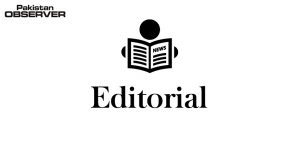AS there are no signs as yet of any improvement in the ground situation, the decision to lift the lockdown almost completely from Monday seems to have been taken in undue haste and might have dreaded consequences. Strangely enough, Punjab Government has decided to reopen shopping malls and allow the public transport to ply on roads after Chief Minister Usman Buzdar gave the green light to the move despite a rise in Coronavirus cases across the province while KP Government has allowed reopening of public transport from Monday.
The Government is apparently under pressure of different interest groups for resumption of their normal business and this was understandable as the decision to open some sectors and businesses created a sort of frustration and heartburning among others who felt deprived of the opportunity to mint money close to the festival of Eid. Representatives of some sectors were building pressure by way of holding press conferences and issuing statements while others started media campaigns for the purpose. With the decision to allow opening of shopping malls and plying of public transport, now the lockdown is confined to closure of educational institutions, limited attendance in offices and a ban on gatherings on occasions like marriages and public meetings and processions. Ironically, the latest decisions were taken even after witnessing common scenes of flouting of safety precautions both by the general public and businesses in different markets and bazaars of the country. Though it has been claimed that SOPs have been prepared for plying of public transport including requirement of fifty per cent empty seats and use of hand sanitizers but there are remote chances that the safety standards would be observed voluntarily by transporters and passengers. If SOPs are not followed in markets, where these can be enforced by personnel of law-enforcing agencies, there is hardly any possibility that these would be adhered to by the public transport and this could lead to dramatic surge in infections and transportation of the virus to areas that remained so far immune to it because of accessibility restrictions. The decision to allow public transport would mainly benefit transporters who would be charging even for the empty seats and in return passengers would be exposed to virus as not to speak of keeping the vehicles hygienic, there is no culture of even general cleaning/dusting of transport.
Same would be the case of resumption of air services as planes would fly with half capacity, which would mean air travel facilitation for influential and wealthy people who could manage ticket and that too at almost double the original cost. Sindh and Balochistan have acted responsibly by refusing to open public transport citing a decision of the NCOC to keep the public transport off the road till May 31. Sindh Transport Minister Ovais Shah has logically maintained that although he respected the Premier’s decision, Coronavirus cases in the province were on an upward trend and the provincial government could not afford to let public transport open. Prime Minister Imran Khan requested the provinces on Friday to open public transport for providing relief and livelihood opportunities to the people, as the nation would have to learn to live with the virus until at least the year-end. No one would doubt intentions of the Prime Minister but in the absence of strict enforcement of SOPs we are committing the blunder of leaving masses at the mercy of circumstances. The issues of facilitation and livelihood notwithstanding, the question arises what the authorities would do if there is abrupt increase in infection cases. Why there is, so far, no move towards stricter implementation of SOPs? The announcement of Special Assistant to the Prime Minister on Health Dr Zafar Mirza that the government will make wearing of face masks mandatory in public places is welcome but why we are taking such decisions in a belated manner? In many countries violations attract penalties and this should also be done in Pakistan for the sake of safety of citizens. We can, at least, follow the footsteps of Saudi Arabia, which has listed four Coronavirus-related precautionary measures the public must follow while shopping: Wearing a face mask at all times, sanitizing hands before and after using shopping carts or other shop amenities, shopping alone or with one other person only while adhering to the ban of the entry of children under the age of 15 and the ban of shopping in groups, and social distancing.










